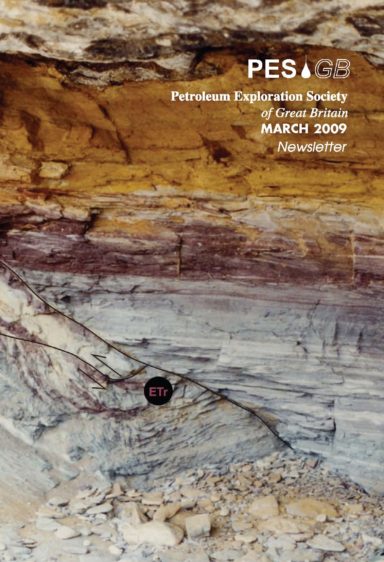PESGB March 2009
- Obituary: Colin Phipps
- IHS Conference Review
- IHS Article
- Past President Reminiscences
- Book Review
- Time Truck
Plus much more inside
Editorial: Plus ca change, plus ca meme chose
When I first took up the post of newsletter editor, one of the duties, or perks depending on ones disposition, was writing an editorial each month. In the eight years between my last stint and this, that contribution seems to have been usurped by the President; but I am still the editor, so I am reclaiming the right, for one month only.
My father died recently and my way of coping has been to go running even more often, and further, than usual. But this just gives me yet more time for introspection and my thoughts often return to my childhood. For example, going shopping for my parents as a child of five or six: the local shops consisted of a grocers, a butchers, a sweet shop / tobacconist, and a Coop. The Co-op was the face of big business, taking work from “the little man”. Fifty years on, returning to the streets of my childhood, I find that the Co-op is the little man, struggling to hold its own against the multi-national supermarkets.
When I left university, clutching a newly-minted degree certificate, the cold war was in full swing and Nixon was bombing Cambodia. The upper echelons of power seemed united in their belief that the only way to save western civilisation was to devise ever more innovative ways of killing people, and the defence contractors were therefore able to offer bigger and better carrots to science graduates than were any other industry, even if there was the minor inconvenience of an unwelcome agit-prop presence at recruitment fairs.
The Six Day War and politicisation of oil supplies increased the public and commercial awareness of our dependence on exploration geologists, giving the oil industry some parity in the carrot stakes, and geologists took on the status of saviours of our way of life, inasmuch as that was represented by heating houses and driving cars. Fast forward to the Exxon Valdez disaster and the fall of the iron curtain, however, and a transformation was taking place: swords were being beaten into ploughshares, a peace dividend was declared, defence contractors were looking for humanitarian uses for cluster bombs, and oil companies were the new bogeymen. The realisation that climate change was most likely anthropomorphic was the final straw for the heirs to the agit-prop brigade who, spurred on by the short-sighted denial by some oil company executives (who presumably didn’t have any children), began to picket petrol stations and scorn those choosing oil companies as employers. If we come forward the same interval again, the write-up for PETEX 2008 emphasised sessions on carbon sequestration and even AAPG conferences now routinely include a forum on environmental responsibility. BP and Shell are jointly leading the way in renewable energy sources and responsible husbandry of the planet’s resources (within the restrictions that we, the consumers, allow them). All of this, from hero to zero and back to hero again, has occurred in an interval of time that a geologist would not recognise as being significantly different from zero. How fickle is public perception.


